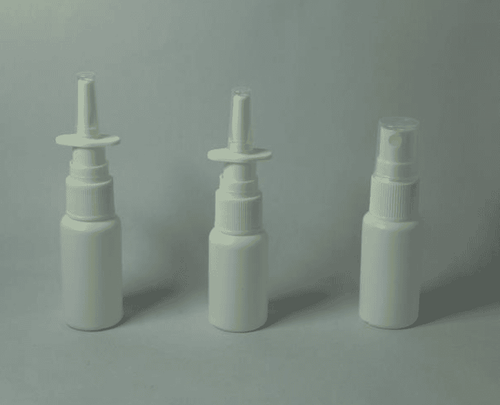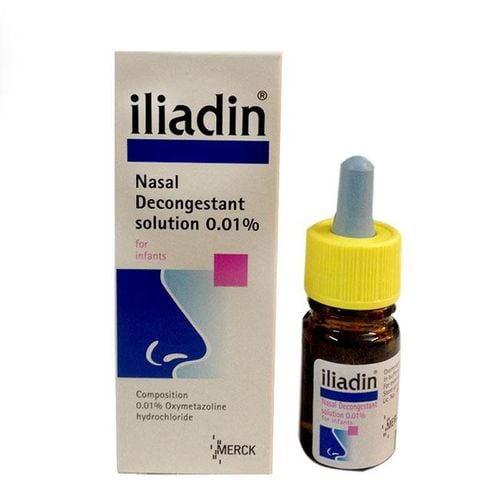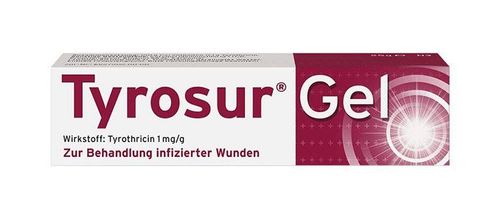This article was professionally consulted by Huynh Xuan Loc MD - Pharmacy Department - Vinmec Central Park International General Hospital.
Pregnant women are a special group that requires caution when using medications to ensure the safety of both mother and baby. In reality, mothers often feel concerned and anxious when they need to take medications during pregnancy, especially for treating common symptoms like cold, congestion, or runny nose. It is not always necessary to use medication, and not all medications are safe for pregnant women. The following advice may help expectant mothers stay healthy and feel more at ease during pregnancy.
1. Rhinitis in pregnant women?
Pregnant women or adults, in general, are susceptible to symptoms of sneezing, runny nose, or stuffy nose. These symptoms are often caused by colds or rhinitis.
- Cold: symptoms include cough, runny nose, sneezing, sore throat, and rarely fever. The cause is usually caused by viruses and goes away on its own after 3 to 7 days; sometimes symptoms can last up to 2 weeks after recovery. Patients only need to use common symptom-relieving drugs, but they also need to be careful and pay attention to worsening symptoms of the disease such as high fever, prolonged fever, loss of appetite, or difficulty breathing ... When experiencing such symptoms, the disease may have progressed to more severe bronchitis, pneumonia ... need to be examined and treated at medical facilities.
- Allergic rhinitis: is a condition of rhinitis caused by allergens such as dust in the air, pollen, grass, house dust or animal hair, and molds in the environment. Symptoms include an itchy nose, sneezing, runny or stuffy nose, watery eyes, and sometimes sore throat, and ears ... To avoid the onset of symptoms, it is necessary to avoid contact with allergens.
- Pregnancy rhinitis: This is a form of rhinitis that appears during pregnancy, usually in the last 6 weeks (or before) and stops completely within 2 weeks after giving birth. Pregnancy rhinitis is considered a separate form of rhinitis, not caused by allergies, infections, or colds. About 20% of pregnant women experience this condition. The cause of the disease is unknown, it may be due to an imbalance of hormones (such as estrogen) during pregnancy.

Regardless of the cause, symptoms of rhinitis (itchy nose, sneezing, runny nose, nasal congestion, etc.) can be very uncomfortable, especially for pregnant women. Persistent or recurrent symptoms, particularly at night, can also reduce sleep quality, leading to stress that affects the health of both the mother and the baby.
2. Which nasal drops or sprays are safe for pregnant women?
All medications for expectant mothers must be carefully selected based on the necessity of the medication and its safety for both the mother and the baby. In all cases, pregnant women should have a proper check-up or consult with a doctor or pharmacist before using any medication. For some common, non-serious conditions, the following over-the-counter nasal sprays are generally considered safe for pregnant women:
- Normal saline nasal sprays: Some products containing isotonic saline solution (such as Sterima, Neilmed Nasamist, Humer, etc.) are safe options for rinsing and cleaning the nose, reducing irritation, runny nose, or nasal congestion. These ingredients are safe, not absorbed into the body, and can be used for extended periods to prevent and alleviate symptoms of rhinitis.
- Nasal sprays containing corticosteroids (such as mometasone, budesonide, beclomethasone, etc.): These are highly effective, especially for allergic rhinitis, helping to reduce symptoms of nasal congestion and post-nasal drip (which causes coughing or throat irritation). The medication should be used at the lowest effective dose and for a limited duration.

- Nasal decongestant sprays (containing oxymetazoline, and xylometazoline): Nasal decongestant sprays can help temporarily relieve severe nasal congestion. However, they should only be used for a short period, such as 3 days or less, and should only be used when other options do not work or are not effective enough. When used long-term, the patient is at risk of drug dependence, which is not beneficial.
- In addition, oral antihistamines: which help reduce irritation, and runny nose ... are also chosen when nasal sprays and drops do not achieve the desired effect. Drugs such as chlorpheniramine (1st generation, side effects cause drowsiness) loratadine, or cetirizine (2nd generation, less drowsiness) can be chosen.
3. Some precautions when using nasal drops or nasal spray for pregnant women
Pregnant women need to be cautious when using medication. Below are some important notes when using nasal drops or nasal spray for expectant mothers:
- Always consult a doctor or pharmacist before using any medication. This helps ensure safety for both the mother and the baby, as well as minimizes the use of unnecessary medications during pregnancy.
- Visit a healthcare facility if symptoms persist or do not improve even after using common medications or if unusual symptoms such as fever, shortness of breath, or rash occur.
- Avoid self-medicating with prescription drugs, medications with unclear safety profiles, or drugs recommended by others. Be especially cautious with oral medications or those advertised as having strong, immediate effects.

Ear, Nose, Throat Department at Vinmec International General Hospital specializes in the diagnosis and treatment of common ear, nose, and throat conditions such as rhinitis, allergic rhinitis, chronic rhinitis, tonsillitis, sore throat, tinnitus, non-allergic rhinitis, throat cancer, head, neck, and face tumors, as well as congenital abnormalities in the ear, nose, and throat areas using common surgical methods.
To register for an ENT consultation and treatment at Vinmec International General Hospital, you can contact the Vinmec Healthcare System nationwide.
To arrange an appointment, please call HOTLINE or make your reservation directly HERE. You may also download the MyVinmec app to schedule appointments faster and manage your reservations more conveniently.
References:
UptoDate, Recognition and management of allergic disease during pregnancy, 2020,
W. Steven Pray, Gabriel E. Pray, Self-Care of Rhinitis During Pregnancy, 2014,
MORE
Relief of Rhinitis Symptoms Allergies during pregnancy Is it okay if pregnant women have allergic rhinitis? Allergic Rhinitis Treatments
To arrange an appointment, please call HOTLINE or make your reservation directly HERE. You may also download the MyVinmec app to schedule appointments faster and manage your reservations more conveniently.








